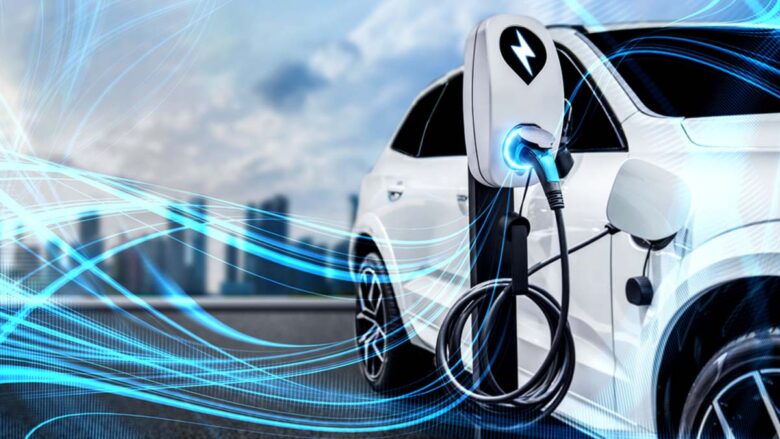Electric vehicles (EVs) have changed dramatically over the past decade. Once a niche market, they are now the choice of many consumers and businesses. New electric vehicle technology is making them more efficient, affordable, and attractive. This article discusses some of the most promising developments in the electric vehicle space.
1. Battery Technology:
Battery technology is a major achievement for electric vehicles. Battery capacity has always been a limiting factor in the range of electric vehicles. However, new battery chemistries and design improvements are dramatically improving the performance of EV batteries. Solid-state batteries are a promising alternative to lithium-ion batteries. These batteries use solid electrolytes instead of liquid electrolytes, improving energy density, charging speed, and safety.
Ultra-fast charging is another innovation. Modern battery technology and charging infrastructure are allowing new electric vehicles to charge faster. Some electric vehicles can charge to 80% in 20 minutes, making long-distance driving easier.
2. Vehicle Efficiency and Range:
The range of electric vehicles is increasing as battery performance improves. Electric vehicles are now able to travel further on a single charge. Vehicle range is also increasing thanks to aerodynamics, lightweight materials and energy-saving technologies. Some of the latest electric vehicles can travel more than 400 miles on a single charge, rivalling many gasoline cars.
Another area where electric vehicles are improving is efficiency. Energy management technology and regenerative braking are maximising stored energy and extending the range of electric vehicles. Instant ADAS and AI adjustments to driving behaviour and vehicle settings optimise energy efficiency.
3. Charging System:
The growth of electric vehicles depends on charging facilities. The latest developments in this area address a fundamental concern among EV buyers: access to charging stations. Governments and private businesses heavily fund fast charging networks in urban and rural areas. These networks are expanding, reducing range anxiety and making electric vehicle ownership more feasible.
Innovation in wireless charging is coming. Wireless or inductive charging systems charge your car without having to plug it into a power source. This technology could revolutionise the way electric vehicles are charged through hands-free charging. Imagine being able to charge your vehicle automatically and without cables while driving at a roadside charging station or parked at a home charging station.
4. Autonomous Driving:
Another major innovation in electric vehicles is autonomous driving. Many electric vehicle manufacturers are developing autonomous driving technology that will change the way we travel. Sensors, cameras, radar, and machine learning algorithms ensure that autonomous driving systems can drive safely and efficiently.
Advanced electronics and software make electric vehicles ideal for autonomous driving. As autonomous driving technology advances, electric vehicles will have a higher degree of automation, from driver assistance to fully autonomous driving.
5. Environmental Impact and Sustainability:
Electric vehicles are leading the effort to make transportation more sustainable. New technology is making electric vehicles more sustainable. The carbon footprint of electric vehicles is decreasing because charging stations use renewable energy. To reduce the environmental impact of battery production and disposal, manufacturers are developing more sustainable battery materials and recycling technologies.
Innovative vehicle design and manufacturing are making electric vehicles last longer. Some industries are exploring recycling materials for energy-efficient manufacturing and automotive interiors.
6. Consumer Accessibility:
As electric vehicles become more mainstream, making them more accessible is a top priority. Advances in manufacturing and economies of scale are driving down the price of electric vehicles. This is driving down the price of electric vehicles and attracting budget-conscious buyers. From basic city cars to luxury sedans and SUVs, there are more models and features to choose from, for every taste.
Conclusion:
The latest innovations in electric vehicles are transforming the automotive industry and creating new sustainable travel options. Advances in battery technology, charging infrastructure, autonomous driving and smart technologies are making electric vehicles more efficient, fuel-efficient and environmentally friendly. As these advances continue, electric vehicles will become even more important in the transportation sector.
Electric vehicles are a technological leap forward and a step towards a more sustainable and innovative future. As electric vehicle technology advances, the path to cleaner and smarter transportation has begun.
FAQs:
1. What is a solid-state battery? Why are they important?
Solid-state batteries do not use liquid or gel electrolytes. Instead, they use solid ones. They are important because they can be better than regular lithium-ion batteries in many ways, such as higher energy density, faster charging, and being safer. In the future, solid-state batteries could make electric vehicles more reliable and improve their performance.
2. What are the recent developments in electric vehicle charging technology?
Recent improvements in charging technology have made ultra-fast charging systems possible. With these systems, an electric vehicle can be charged to 80% of its charge in just 20 minutes. Researchers are also investigating wireless or inductive charging technology that would allow cars to be charged without being connected to a power source. This makes charging much easier and does not require a physical connection.
3. How far can the new electric car go?
The range of new electric cars is much better than before. Many new models can travel more than 400 miles on a single charge, about the same as many gasoline-powered cars. This longer range is achieved through improvements in battery technology, airflow, and energy management systems.
4. How will self-driving technology work with electric vehicles?
Electric vehicles have autonomous driving capabilities and use sensors, cameras, radar, and machine learning systems to work together. These systems allow cars to drive themselves, avoid obstacles, and make decisions about what to do next without human assistance. As technology advances, we can expect more automation, which could eventually lead to self-driving cars.
5. What are the new developments in eco-friendly electric vehicles?
The latest improvements in making electric vehicles eco-friendly include charging stations that use green energy, creating greener battery materials, and better recycling methods. Manufacturers are also working on developing production methods that use less energy and use eco-friendly materials in their vehicles.




